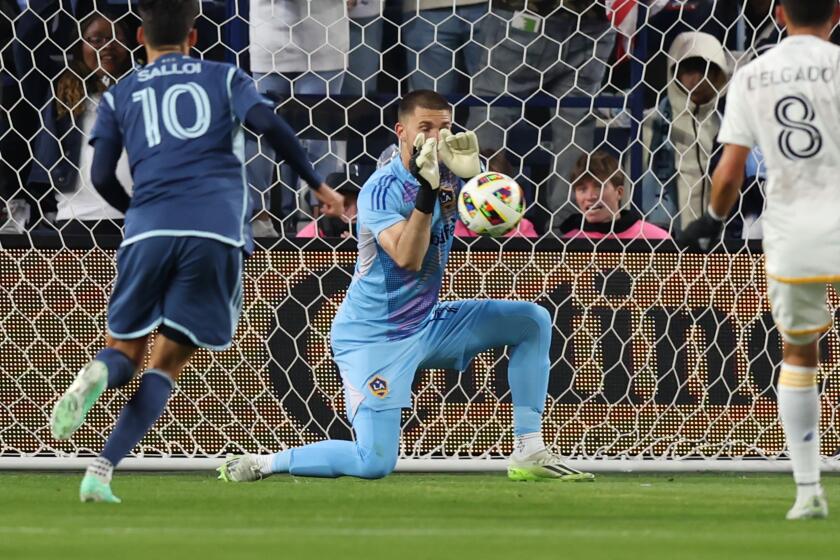Should All Students Be Drug-Tested? : Controversial Supreme Court decision is wise only to the extent it is applied carefully
Playing junior and high school sports is a privilege, not a right, and participating in those sports is voluntary. The distinction between that and mandatory activities makes tolerable a new Supreme Court decision to allow random drug testing of public school athletes. Linking drug testing with voluntary participation in activities that many students covet may save futures--and some lives.
The Supreme Court ruled Monday that children do not have the Fourth Amendment protection enjoyed by adults against unreasonable search and seizure or the same expectation of privacy. The youngsters are “committed to the temporary custody of the state as schoolmaster . . . ,” Justice Antonin Scalia noted in the 6-3 decision, which allows the Oregon school district that instituted the mandatory drug policy to continue to require testing of athletes without probable cause. Some civil libertarians argue that the decision treats students as second-class citizens who are presumed guilty until proven innocent. If too broadly interpreted, the ruling could be used to allow drug testing of all students without cause. That is what is most troubling about it.
The school district’s testing policy was implemented with community and parental support in response to a significant drug problem. The district required all athletes to be tested for cocaine and marijuana before the season started and to agree to random testing during the season. Any youngster who tested positive was not thrown off the team but instead received counseling. That’s good: Such help should be forthcoming.
We have no problem with the school district’s determination that drug testing was needed to deal with a problem on campuses there. What would be unfortunate is if the Supreme Court decision was used to throw open the door to widespread random drug testing of all students without even dealing with what is probably one of the most abused drugs among young athletes--steroids.
In the interest of safety and fairness, Olympic competitors are tested for steroids and other performance-enhancing drugs. If school districts insist on testing athletes, steroids should be included, although those tests are much more expensive than tests for cocaine and marijuana.
Police often stop law-abiding drivers at checkpoints in an effort to stop drunk drivers. The court’s decision should be used similarly--only to allow local school districts to respond appropriately to drug abuse problems, not as a blanket license to test students at will.
More to Read
Get our high school sports newsletter
Prep Rally is devoted to the SoCal high school sports experience, bringing you scores, stories and a behind-the-scenes look at what makes prep sports so popular.
You may occasionally receive promotional content from the Los Angeles Times.






